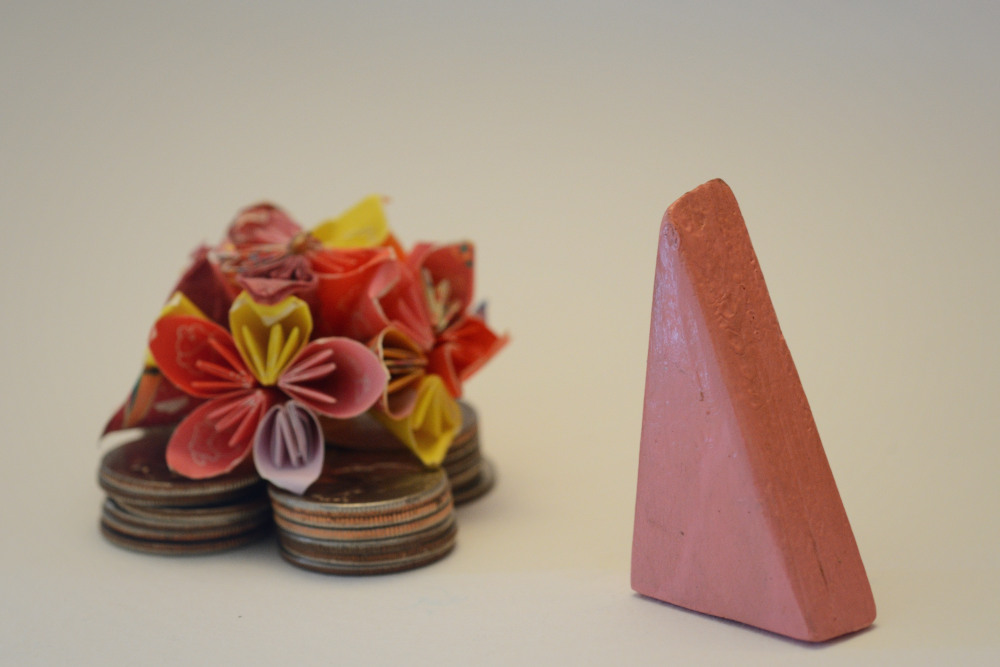It’s been a long few years, but your company is finally having its IPO. Lucky you!
If your company is going (or has recently gone) public, then perhaps you are beset by anxiety about “How do I do this right?” You recognize that this is probably a once-in-a-lifetime opportunity to make real wealth in a very short period of time, and you don’t want to screw it up.
And ‘tis true! On all counts. It’s rare to work at a company that goes public, especially one that goes public successfully. It probably won’t happen to you again. And there are a lot of ways to screw this up.
But what I don’t want you to think is, “In order to do this right, I have to be sure to pay as few taxes and make as much money as possible.”
It’s possible those things will coincide with “doing it right.” But they’re not sufficient. Hell, they’re not even necessary.
If I lost a few readers with that comment, okay, I’m not surprised. Because this simply isn’t the way we generally think about IPOs. We generally think about Money Money Money! Taxes Taxes Taxes!
What I would very much like you to think about instead is Life Life Life! Purpose Purpose Purpose!
Most content I see or advice I hear about IPOs or anything equity comp-related is about technical stuff. Minimizing taxes. Diversifying your portfolio. Etc.
And that stuff is indeed really important to think about! I just think it tends to distract us from the main point (“what is this all for?”). Its prominence in the discussion of equity comp increases the chances we’re going to make sub-optimal decisions. Ultimately, I think, it has the potential to make us all less content with our finances.
I am drafting this blog post on the airplane ride back from two weeks’ vacation on the east coast. I took my family to NYC for five days. There we got to have new experiences together, I got to see my kids get excited about things. I got to meet in-person some clients I’ve only ever seen on the screen. (As one of my daughters said, “Are all your clients this cool? No wonder you love your job.”)
Then we went to New Hampshire, where we spent over a week in a rented house on a lake, with my father and my brother’s family, including my kids’ only cousin. I get to see them all only once a year, and it’s very special to me.
Now, did I need money to have and enjoy this vacation? No doubt. Some money is definitely necessary.
If I were twice as rich, or if I paid less in taxes, could we have afforded a fancier rental house or rented a speed boat for more than one day?
Certainly.
Would it have given me more or better memories? Would it have strengthened my relationships with my family any better? Would it have helped me avoid getting Covid (which I did…womp womp)? Would it have increased my joy at looking over the cabin railing down at the beach, seeing my two daughters play Marco Polo with their cousin in the lake?
Probably not.
We’re all different. Different values. Different stages of life. Different histories with money and relationships. I don’t share my recent vacation awesomeness as a specific aspiration. I’m sure many of you have had more expensive, more elaborate, and even more enjoyable vacations.
But I do want to invite you to think (many times, with many people, sometimes in silence, over a long period of time) about what makes your life meaningful. What gives you purpose. What gives you joy.
That should be the guiding light of your IPO decisions.
If your goal is to minimize taxes, then sure, yes, you can:
- Strategically exercise and sell your ISOs so that you never owe Alternative Minimum Tax (AMT)
- Wait to exercise (and sell) your NSOs until you have used up most of the leverage in them (gotten most of the value out of the options)
- Hold on to your shares for at least a year to ensure you pay the lower long-term capital gains tax rate when you sell them
- Spread your options exercise and share sales over several years so you stay out of the highest tax bracket
- Put your giant pile of company stock in an Exchange Fund to get diversification without immediately selling (and incurring taxes)
- Donate a lot of company stock to a Donor Advised Fund
If your goal is to get as rich as possible, then sure, yes, you can keep most of your company stock. After all, concentrated ownership in an asset is one of the few ways to build startling wealth.
But what if the company stock price tanks? (That’s been known to happen a time or 1000 in the aftermath of an IPO.)
Or you need the money to do something or buy something now?
Your savvy tax- and wealth-optimization maneuvers can result in less money, for the simple reason that we just don’t know how this stock is going to perform. Now, if it’s “just money,” then maybe our attitude is “oh well.”
But if instead of “just money,” it’s your kid’s college, or your first home, your return to school to train for a new career, that trip you really want to take your family on, or that robust cash emergency fund you’ve always lacked and has always made you feel vaguely unsafe…well then, that’s actually kind of a tragedy.
Consider two people going through the same IPO: Chloe and Jane.
They each have $2M worth of company stock. Chloe does all the wealth-maximizing, tax-minimizing things. Chloe doesn’t have much sense of what she wants out of life. She just wants to have more money, be wealthier, be “financially independent,” to do what she wants when she wants.
Jane, on the other hand, has a pretty clear vision of what she wants out of life. She has thought about this before. She wants enough wealth that she can feel comfortable saying No the next time her job makes her feel uncomfortable or morally compromised. She wants to move back home, closer to family, and buy a home there. So, she sells most of her stock as soon as she can, not even paying much attention to the tax rate.
This can play out two ways:
Way #1: Let’s say the company stock goes on to do poorly. Well, then, generally it was a better bet to sell the stock ASAP, when it was worth more. Jane comes out on top: She has more money than Chloe and more ability to build her vision of a rich life.
That’s an easy one.
Way #2: But now let’s say that the stock instead goes on to do great! Chloe ends up with four times the wealth that Jane does!
You might think this makes Jane’s path the less fortunate one. I would argue Jane still probably comes out ahead. How is that possible?
Jane still has enough money to allow her to quit her job if it ceases being a good fit for her, and enough money to move back home and buy a house. She can still fund her vision of a rich life.
On the other hand, yes, Chloe has money. Lots of it. And money ain’t nothing to sneeze at. But that’s kind of all she has. There’s no higher purpose that this money is serving in her life. Maybe she can get a more expensive home. Go out to eat more. Take nicer vacations. But unless there’s a broader vision underlying those things, it’s just plain consumption.
Now, look, no financial planner worth their shiny CFP® lapel pin would tell you to ignore taxes and the strategies for building more wealth. We have to know these things so we can make an informed decision.
But I don’t actually think your IPO, even if it “goes well,” will meaningfully change your life if you don’t start with a vision (even a vague one) of the life you want to build for yourself, now and in the future.
Step #1 is to build that vision. At least the outlines of one.
Step #2 is to optimize for minimizing taxes and building wealth within that larger life plan, not as the plan itself.
I invite you to figure out how you’re going to define a “successful” IPO.
Is it defined by how much you pay to the IRS? Is it defined by how much money you get compared to your colleagues?
Or is it (and I hope you arrive here) defined by your ability to meaningfully support a life of meaning and joy? A life that better enables you to build and honor relationships? To serve others?
Do you want help making your company’s IPO a success?











